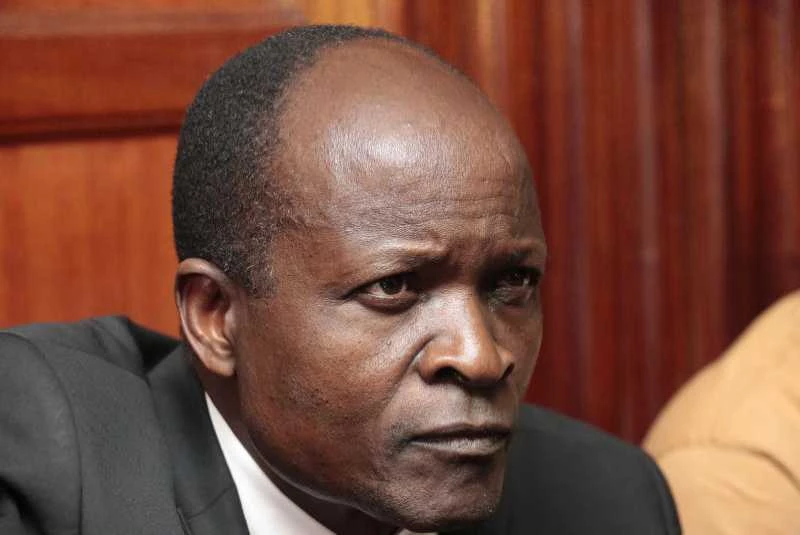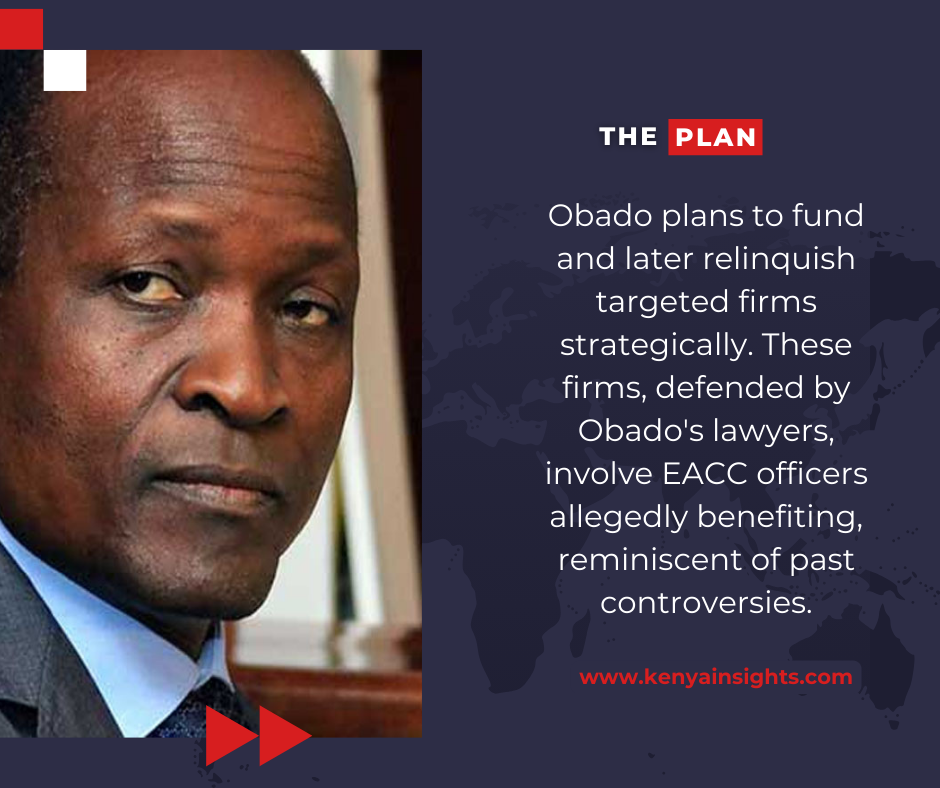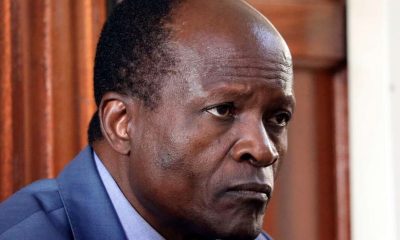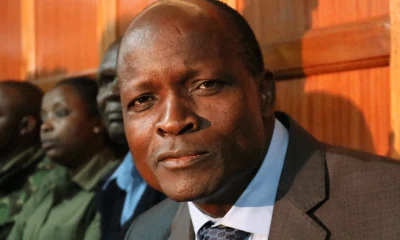Investigations
Obado’s Covert Scheme to Reacquire Sh235m Properties Through Proxies

Former Migori Governor Okoth Obado is orchestrating a covert plan to reclaim his Sh235 million properties through proxies, following the government’s shocking decision to drop a Sh1.9 billion asset forfeiture case against him.
This scheme involves close allies acting as buyers, raising serious concerns about the integrity of Kenya’s anti-corruption efforts.
With EACC officers allegedly benefiting and political influence at play, this deal undermines public trust and questions the true commitment to justice in Kenya’s fight against high-level corruption.
Okoth Obado’s Covert Scheme and Property Dealings
Close allies of former Migori Governor Okoth Obado are orchestrating a covert operation to reclaim his properties through proxies.
This revelation comes after the government shockingly dropped a Sh1.9 billion asset forfeiture case against him.
Our sources indicate that Obado’s team played it safe, opting for a “Plan B” to reclaim the properties. They bet on the fact that no one would raise the colossal sum needed to purchase these properties at auction.
Obado has deliberately released some rural properties but has a strategic plan for the more valuable assets.
Proxy Buyers in Place
Obado has already identified individuals who will be funded to buy the properties and then return them at an opportune time.
Registered and operational firms have been carefully selected by Obado’s legal team to facilitate this maneuver.
EACC’s Involvement and the Suspicious Settlement
The Ethics and Anti-Corruption Commission (EACC) officers involved in the case are rumored to benefit from this scheme.
This scenario is reminiscent of the controversial acquisition of Integrity Centre by the EACC.
According to EACC lawyer Jackie Kibogy, the settlement absolves Obado, his four children, businessman Jared Kwaga, and associated firms from facing trial for alleged financial impropriety amounting to Sh1.9 billion and an additional Sh73 million linked to unexplained wealth.
The Asset List
The assets to be auctioned include:
- A house in Loresho valued at Sh40 million.
- A commercial property known as Sunrise Centre.
- Residential blocks in Suna East worth a combined Sh137.6 million.
- Two Toyota Land Cruiser V8 vehicles.
- Several other properties totaling Sh235.6 million in value.
Judicial and Public Outcry
Judge Esther Maina questioned EACC’s legal counsel, demanding justification for settling such a significant case for just Sh235 million.
This settlement has sparked widespread outrage, with many questioning the integrity of Kenya’s anti-corruption efforts.
Obado’s Covert Scheme and Political Fallout
Obado’s influence in Kenyan politics, combined with the scale of the allegations, casts a long shadow over the settlement.
Critics argue that this deal undermines the pursuit of justice and sends a discouraging message about the state’s commitment to fighting high-level corruption.
Legal and Ethical Implications
Legally, resolving the case without a full trial deprives the public of transparency and accountability. It suggests that powerful individuals can evade accountability, potentially at taxpayers’ expense.
Conclusion
As details of this shadowy operation continue to unfold, the public remains skeptical about the true motives behind the EACC’s settlement with Okoth Obado.
This case is a stark reminder of the ongoing challenges in the fight against corruption in Kenya, highlighting the urgent need for more stringent and transparent anti-corruption measures.
The spotlight now falls on the EACC and other involved parties to demonstrate that justice is not a commodity to be bought and sold, but a fundamental right for all Kenyans.
Kenya Insights allows guest blogging, if you want to be published on Kenya’s most authoritative and accurate blog, have an expose, news TIPS, story angles, human interest stories, drop us an email on [email protected] or via Telegram
-

 Grapevine2 weeks ago
Grapevine2 weeks agoRussian Man’s Secret Sex Recordings Ignite Fury as Questions Mount Over Consent and Easy Pick-Ups in Nairobi
-

 News7 days ago
News7 days agoTHE FIRM IN THE DOCK: How Kaplan and Stratton Became the Most Scrutinised Law Firm in Kenya
-

 Investigations1 week ago
Investigations1 week agoMulti-Million Dollar Fraud: Three Kenyans Face US Extradition in Massive Cybercrime Conspiracy
-

 Economy1 week ago
Economy1 week agoIran Demands Arrest, Prosecution Of Kenya’s Cup of Joe Director Director Over Sh2.6 Billion Tea Fraud
-

 Business1 week ago
Business1 week agoA Farm in Kenya’s Rift Valley Ignites a National Reckoning With Israeli Investment
-

 Africa1 week ago
Africa1 week agoFBI Investigates Congresswoman Ilhan Omar’s Husband’s Sh3.8 Billion Businesses in Kenya, Somalia and Dubai
-

 Grapevine3 days ago
Grapevine3 days agoA UN Director Based in Nairobi Was Deep in an Intimate Friendship With Epstein — He Even Sent Her a Sex Toy
-

 Politics2 weeks ago
Politics2 weeks agoSifuna, Babu Owino Are Uhuru’s Project, Orengo Is Opportunist, Inconsequential in Kenyan Politics, Miguna Says





















